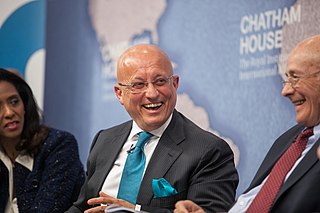A Quote by Kenneth Arrow
Some people say Russia is running at 50 percent of its gross domestic product under that during the Communist period. In fact, none of the countries seems to have recovered the level that they had under communism, although the other countries in Eastern Europe are doing better than Russia and particularly the Czech Republic seems to be doing modestly well. East Germany I can't count because they have a rich uncle. You have economic benefits which have nothing to do with the workings of the system.
Quote Topics
Although
Because
Benefits
Better
Communism
Communist
Count
Countries
Czech
Czech Republic
Doing
Domestic
East
East Germany
Eastern
Eastern Europe
Economic
Economic Benefits
Europe
Fact
Germany
Gross
Gross Domestic Product
Had
In Fact
Level
None
Nothing
Other
Other Countries
Particularly
People
People Say
Percent
Period
Product
Republic
Rich
Running
Russia
Say
Seems
Some
Some People
System
Than
Uncle
Well
Which
Related Quotes
The switch to the market in Eastern Europe, of course, has not exactly been one of the greatest advertisements for the market. There's no question the socialist system - and I hate to use the word 'socialist,' but I suppose some description of a system in which the state is in control - was breaking down, really collapsing. In these countries, most markedly in Russia itself and in a number of the others, it obviously was based on a tyranny, which is unacceptable even if it were producing good economic results, which it was not.
The fact that Turkey, the U.S., and Russia and other countries are really interested in Cyprus because of its strategic location... the fact that Russians launder their money there to avoid sanctions, and the fact that key U.S. and Russia players were there - all make it really important for the Russia investigation.
The political elite in Russia don't want domestic reform, they aren't ready for it. As such, they welcome an external threat. You have to remember that Russia rests on two national concepts: defense and sovereignty. We approach the question of security much more reverentially than other countries do.
Russia and other countries have been hacking and attempting to attack American institutions for years, that Russia's attack on American elections has been going back for over 50 years. So this is nothing new. And the fact that this particular hack was perpetrated by Russian entities is something that no one is disputing.
I had traveled to Russia and met with Snowden, which was a pretty involved meeting that required encrypted communication and the like. And it was fascinating because of who he is and what he's done. And more so because what's going on between our two countries, Russia and the U.S., and to meet Edward Snowden in Russia was unforgettable.
I think it's hypocritical to complain about the rise of China. For 50 years, we were telling everybody in the world that the big threat was Communism, so now the countries that were Communists are now rampant capitalists - and they're doing very well, in some ways much better than the UK. Well, we asked for it. We told them that's what you have to do, and they're doing it, buying up your biggest hotels in New York. You have to laugh.
Some countries have a parliamentary republic, some are presidential republics and some are still monarchies, but no one sees them as not being democratic. In some countries regional leaders are appointed from the centre and in others they are elected. In Russia, the president is elected through direct secret ballot, and in the United States, the president is elected through a system of electoral colleges.
The mistake we make with many people - not just Russia - is that we believe we have the model, and there is a sort of a condescension in our dialogue with other societies, which was especially painful in several administrations to Russia. I think in Russia, the Yeltsin period is not considered a period of great achievement, but a period of corruption and humiliation.
The BRIC countries - Brazil, India, China, Turkey, South Africa, Indonesia even, and Russia - are now new actors. Over the last eight years, China multiplied by seven its economic presence and penetration in the Middle East. And if this happens on economic terms and there is a shift towards the East, the relationship between these countries and Israel is completely different from the United States. And it means that the challenges are going to be different, because China is not supporting Israel the way the U.S. are supporting Israel.




































